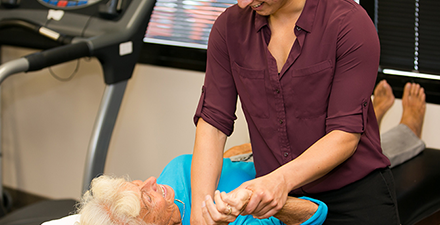
Most Americans don’t move enough despite proven benefits, such as reduced risk of cancer and chronic diseases, and improved bone health, cognitive function, weight control, and overall quality of life.
The second edition of the Physical Activity Guidelines for Americans, reports that approximately 80% of US adults and adolescents are insufficiently active. As a result, many Americans currently have or are likely to experience chronic diseases, including heart disease, diabetes, obesity, and depression.
The good news is that regular physical activity can prevent and improve many chronic conditions. America, it's time to get moving!
How Much Physical Activity Should I Do?
According to the guidelines, the following amounts of physical activity are recommended:
Preschool-aged children (ages 3 through 5 years) should be physically active at least for 3 hours, if not more. Adult caregivers should encourage active play that includes a variety of activity types and limits sitting-around time, such as screen time.
Children and adolescents (ages 6 through 17 years) need at least 60 minutes or more of activity a day. This includes activities to strengthen bones, build muscles, and get the heart beating faster.
Adults should do at least 150 minutes of moderate-intensity aerobic activity a week, and at least 2 days for muscle-strengthening activities. Adding more time provides further benefits.
Older adults (ages 65 and older) should do at least 150 minutes of aerobic activity a week and include muscle-strengthening activities 2 days a week. You should also add components, such as balance training as well. If you have limitations due to preexisting conditions, consult with a health care provider and be as physically active as your abilities allow.
Pregnant and postpartum women who were physically active before pregnancy can continue these activities during pregnancy and in the postpartum period, but they should consult their health care provider about any necessary adjustments.
Adults with chronic health conditions and disabilities, who are able, should do at least 150 minutes of moderate-intensity activity a week. You should consult with a health care provider about the types and amounts that are appropriate for you.
How a Physical Therapist Can Help
Physical therapists are movement experts who improve quality of life through prescribed exercise, hands-on care, and patient education.
After making a diagnosis, physical therapists create personalized treatment plans that help their patients improve mobility, manage pain and other chronic conditions, recover from injury, and prevent future injury and chronic disease.
Physical therapists empower people to be active participants in their own treatment, and they work collaboratively with other health professionals to ensure patients receive comprehensive care.
You can contact a physical therapist directly for an evaluation. To locate a physical therapist in your area, visit Find a PT.

